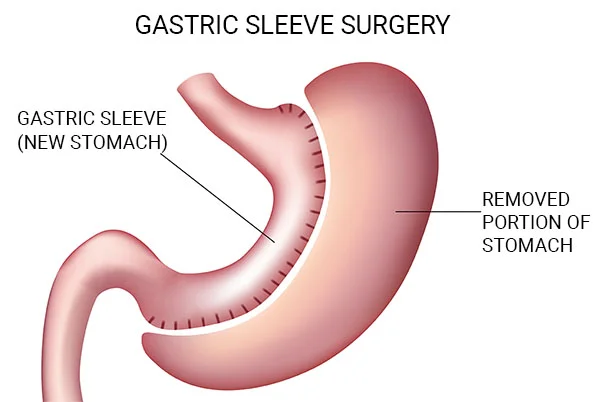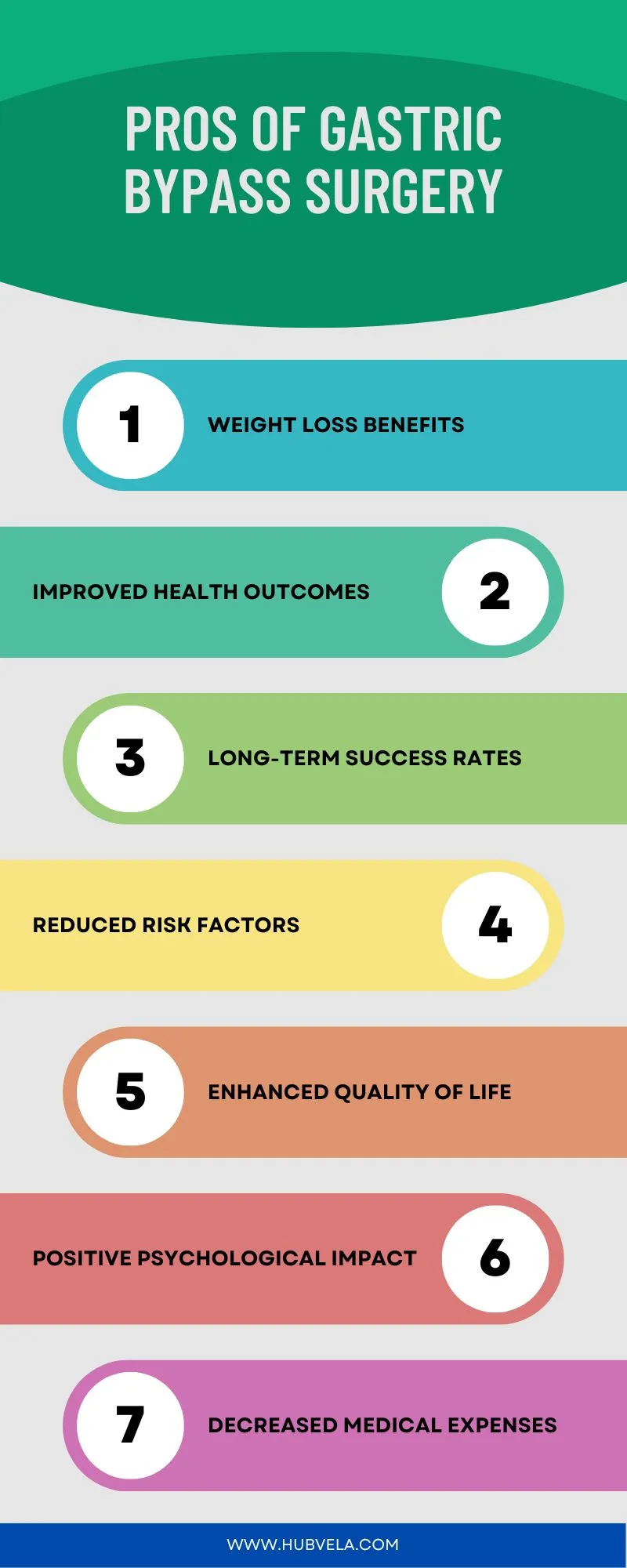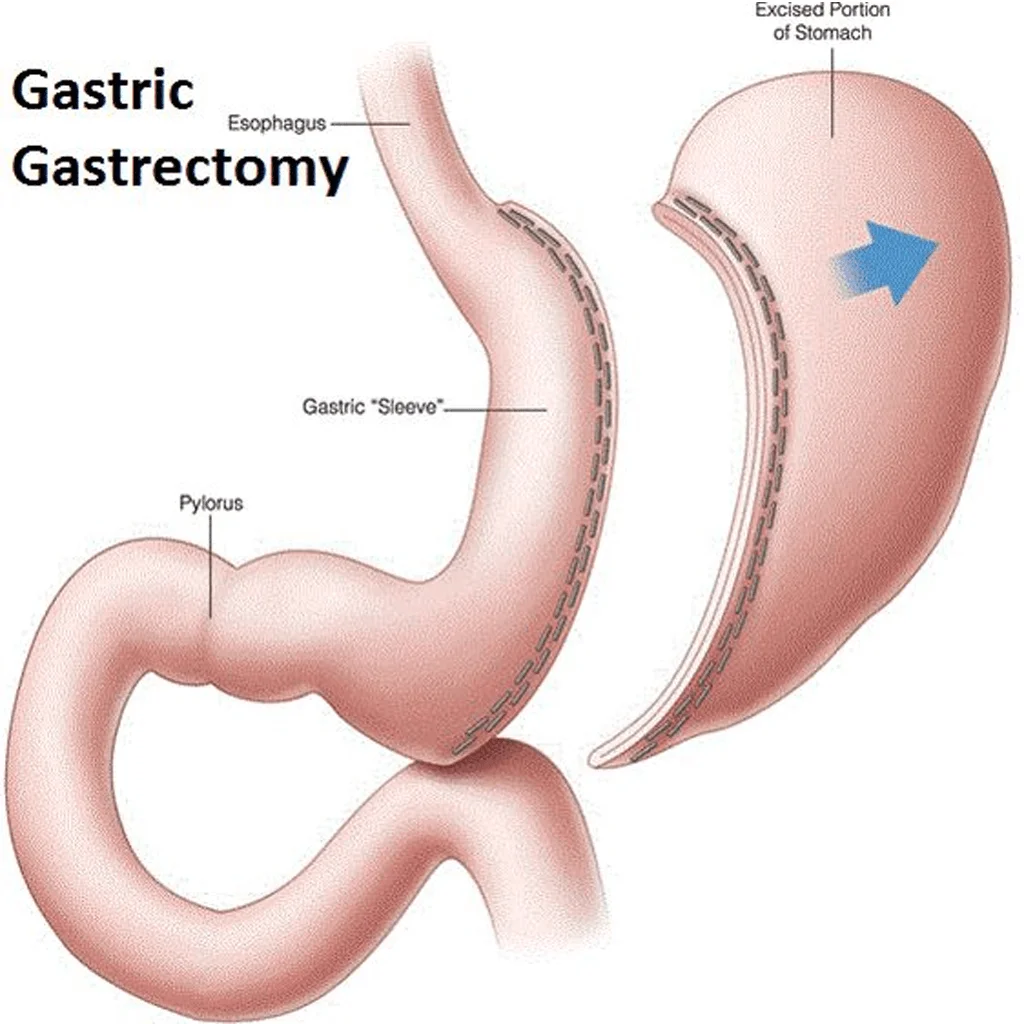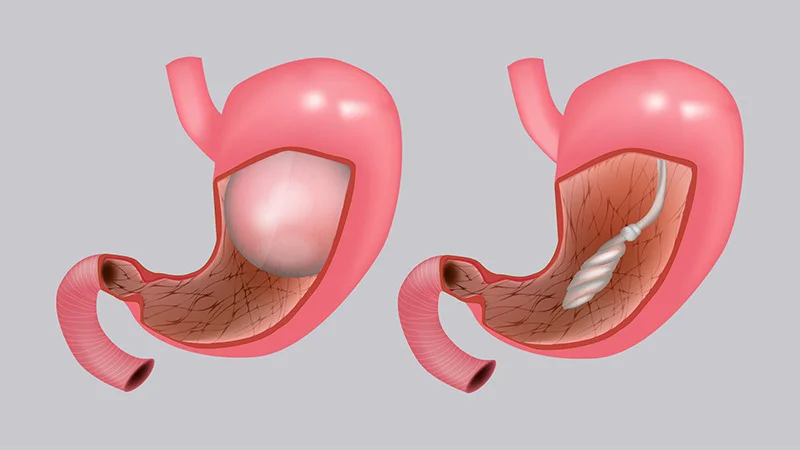Introduction: Opportunities and Risks of Gastric Surgery
Opportunities and Risks of Gastric Surgery: Gastric surgery, often referred to as bariatric surgery, has become a vital option for individuals struggling with severe obesity. It offers significant weight loss and improvement in obesity-related conditions, but it also comes with its set of opportunities and risks. This article explores the various aspects of gastric surgery, highlighting the benefits, potential complications, and factors to consider when deciding whether this intervention is the right choice.
Opportunities of Gastric Surgery
Opportunities and Risks of Gastric Surgery:
1. Significant Weight Loss
One of the primary benefits of gastric surgery is substantial and sustained weight loss. Patients typically lose 50-70% of their excess weight within the first year post-surgery. This weight loss can significantly improve quality of life and physical mobility.
2. Improvement in Obesity-Related Conditions
Gastric surgery can lead to the improvement or resolution of numerous obesity-related health conditions, including:
- Type 2 Diabetes: Many patients experience remission of diabetes following surgery.
- Hypertension: Blood pressure typically decreases, reducing the need for medication.
- Sleep Apnea: Weight loss can alleviate symptoms, leading to better sleep quality.
- Joint Pain: Reduced weight load on joints can decrease pain and improve mobility.
- Hyperlipidemia: Improved cholesterol levels are common after weight loss.
3. Enhanced Quality of Life
Patients often report improved quality of life post-surgery, including:
- Increased physical activity
- Higher self-esteem and body image
- Better mental health and reduced depression and anxiety
- Greater participation in social and recreational activities
4. Long-Term Weight Maintenance
While traditional weight loss methods often lead to weight regain, gastric surgery provides a more sustainable solution. Many patients maintain significant weight loss for years post-surgery, provided they adhere to lifestyle changes.
5. Increased Life Expectancy
By reducing the risk of obesity-related diseases, gastric surgery can contribute to increased life expectancy. The overall improvement in health and reduction in comorbidities can significantly enhance longevity.
Risks and Complications of Gastric Surgery
Opportunities and Risks of Gastric Surgery:
1. Surgical Risks
As with any major surgery, gastric surgery carries inherent risks, including:
- Infection: Postoperative infections can occur at the incision sites or internally.
- Bleeding: There is a risk of bleeding during and after the surgery.
- Adverse Reactions to Anesthesia: Complications related to anesthesia can occur, including allergic reactions and respiratory issues.
- Blood Clots: There is a risk of developing blood clots in the legs (deep vein thrombosis) that can travel to the lungs (pulmonary embolism).
2. Postoperative Complications
Specific complications can arise after the surgery, including:
- Nutritional Deficiencies: Reduced food intake and absorption can lead to deficiencies in essential vitamins and minerals, such as iron, calcium, vitamin B12, and folate.
- Dumping Syndrome: Particularly after gastric bypass, rapid gastric emptying can cause nausea, vomiting, diarrhea, and dizziness after eating.
- Bowel Obstruction: Internal hernias or scar tissue can block the intestines, requiring further surgery.
- Gallstones: Rapid weight loss can increase the risk of gallstone formation.
3. Long-Term Risks
Long-term risks and considerations include:
- Weight Regain: Although less common than with traditional weight loss methods, some patients may experience weight regain if they do not adhere to recommended dietary and lifestyle changes.
- Psychological Impact: The psychological effects of rapid weight loss and body image changes can be challenging. Some patients may experience depression or anxiety.
- Changes in Digestive Function: Patients must adapt to significant changes in their digestive function, which can affect eating habits and food tolerances.
Opportunities and Risks of Gastric Surgery: Factors to Consider Before Surgery
1. Eligibility Criteria
Not everyone is a candidate for gastric surgery. Eligibility criteria typically include:
- BMI of 40 or higher
- BMI of 35 or higher with obesity-related health conditions
- Previous unsuccessful attempts at weight loss through diet and exercise
- Commitment to long-term lifestyle changes and follow-up care
2. Comprehensive Evaluation
A thorough preoperative evaluation is necessary to determine suitability for surgery. This includes:
- Medical history review
- Physical examination
- Nutritional and psychological assessments
- Diagnostic tests, such as blood tests and imaging studies
3. Lifestyle Commitment
Successful outcomes depend on a patient’s willingness to commit to significant lifestyle changes. This includes:
- Adopting a balanced, nutrient-rich diet
- Regular physical activity
- Taking prescribed nutritional supplements
- Attending regular follow-up appointments
4. Support System
Having a strong support system can significantly impact the success of gastric surgery. Support from family, friends, and healthcare providers can provide the necessary emotional and practical assistance.
Conclusion: Opportunities and Risks of Gastric Surgery
Gastric surgery offers a powerful solution for individuals struggling with severe obesity, providing significant weight loss and improvement in obesity-related health conditions. However, it is not without risks and requires a strong commitment to lifestyle changes and ongoing medical supervision. By understanding the opportunities and risks associated with gastric surgery, patients can make informed decisions and work closely with their healthcare providers to achieve the best possible outcomes.
For those considering gastric surgery, Turkey, and specifically Get Slim in Turkey in Antalya, offers comprehensive care packages and expert guidance to ensure a smooth and successful journey to better health.





